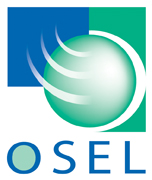Oncology
Oncology
Enhance immunotherapy for multiple oncology indications
Immune checkpoint inhibitors (anti-PD-1/PD-L1 and anti-CTLA-4) have been a breakthrough in the treatment of many cancers, but only a fraction of patients respond to these therapies. The intestinal microbiota is now accepted as a potent modulator of immune responses, especially in the context of immune checkpoint inhibitor treatment for cancer. Antibiotics negatively impact the clinical outcome of cancer patients during therapy with anti-PD-1/PD-L1 antibodies. Specific microbial metabolites, including short chain fatty acids (SCFAs) such as butyrate, influence cancer development and systemic immune responses. Bacteria that produce SCFAs are often depleted during antibiotic treatment. Produced by bacterial fermentation of dietary fiber, SCFAs are highly abundant in the colon and key to colonic homeostasis. They are also associated with the clinical response to anti-PD-1 therapy in cancer patients. In particular, butyrate is known to directly regulate the activity, proliferation, and apoptosis of numerous immune cells.
CBM588 (Clostridium butyricum MIYAIRI 588) is an LBP that produces butyrate and other SCFAs and has immunomodulatory activity. CBM588 has recently been evaluated as a treatment to improve the effectiveness of immunotherapy with checkpoint inhibitors. In a retrospective study of patients in Japan with advanced lung cancer (NSCLC) undergoing immunotherapy with nivolumab, pembrolizumab, and atezolizumab, CBM588 significantly prolonged progression-free survival (PFS) and overall survival (OS) compared to a control group, even in patients who received antibiotic therapy. In a prospective randomized Phase 1 study conducted at the City of Hope Comprehensive Cancer Center (NCT03829111), CBM588 with the checkpoint inhibitors nivolumab and ipilimumab significantly improved PFS of patients with metastatic renal cell carcinoma compared to nivolumab/ipilimumab alone (12.7 months vs. 2.5 months). Additionally, use of CBM588 in combination therapy was linked to an increase in overall response rate when compared to use of nivolumab/ipilimumab therapy alone (58% vs. 20%).
A follow up study of CBM588 in combination with nivolumab and cabozantinib (a tyrosine kinase inhibitor) for advanced metastatic RCC was recently completed at the City of Hope (NCT05122546). This second prospective trial assessing CBM588 with another first-line ICI-based therapy also yielded positive results. The overall response rate was significantly higher in patients treated with CBM588 compared to those in the control arm (74% vs. 20%, p=0.01). The PFS at 6 months was 84% and 60% in the experimental and control arms, respectively. No significant difference in toxicity profile was seen between the study arms. Both studies have been published in Nature Medicine.
Allogeneic hematopoietic stem cell transplantation
Allogeneic hematopoietic cell transplantation (allo-HCT) is a potentially curative procedure for a variety of hematologic malignancies. A complication of allogeneic transplantation is that the immune cells from the donor (the graft) may attack healthy cells in the patient’s body (host). This is called “graft-versus-host-disease” (GvHD). There are treatments for GVHD, but in some patients, GVHD does not respond to treatment and can be fatal. Since CBM588 holds promise for maintaining or even improving intestinal homeostasis, it was expected to confer a beneficial impact on HCT outcomes, including severity and frequency of regimen-related diarrhea, systemic/intestinal infections, and acute GVHD. A randomized Phase 1 study of CBM588 in allo-HCT recipients was conducted at the City of Hope Comprehensive Cancer Center (NCT03922035) and demonstrated safety of CBM588 administration during the peri-transplant period, and an early favorable sign of gastrointestinal-GvHD incidence and HCT outcomes in an older population.
